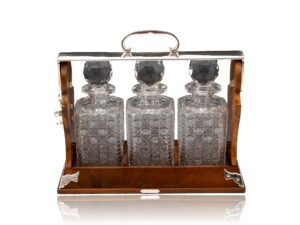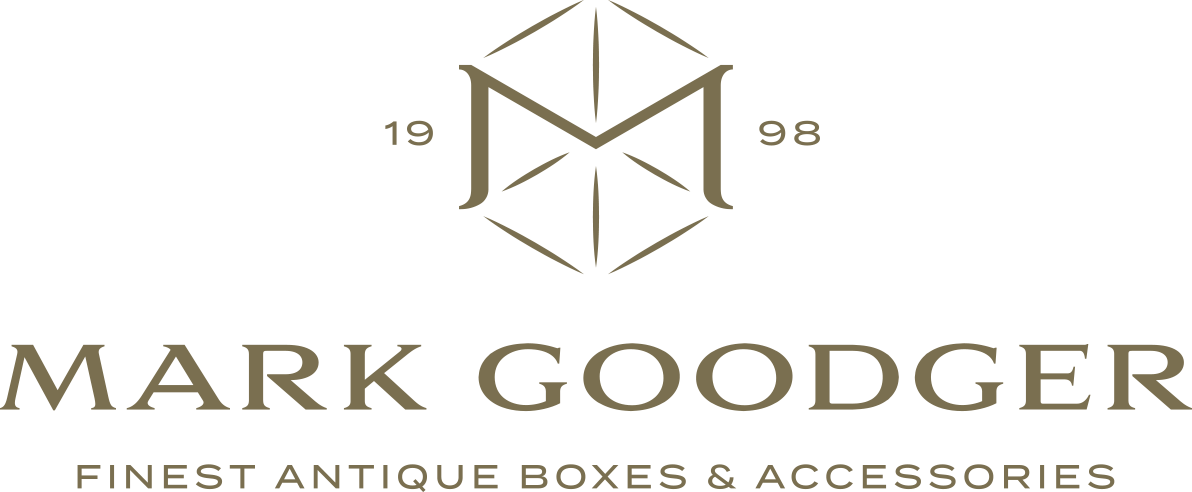Finnigans Ltd
In 1830 Benjamin Finnigan opened a workshop in Newton Street Mill and a Finnigans shop at number 15 Market Street Manchester.
Originally known for manufacturing high-quality dressing cases and travelling trunks.
Benjamin registered hallmarks with both Chester and London assay offices in 1830.
After his death in 1868, his son William continued the business and in 1879 opened a Finnigans shop at New Bond Street, London. The shop soon had an impressive list of names on the books such as the Vanderbilts, Rockefellers and Fords.
Opposite this new shop was the firm Asprey and both companies thrived from friendly competition. Although specialising in Leather and saddlery Finnigans also started to sell clocks, watches and silverware.
In 1938 the business was taken over by fourth generation Brian Finnigan who continued the trend of succesful expanse. He was joined by brother Peter Finnigan after the second world war and together they would pioneer a new trend amongst retailers of moving city stores to much sububrban locations.
In 1968 Finnigans closed its New Bond Street store in London but continued as a family business until it closed its last store in 1988 when the family were bought out by a company called Hoopers.
Finnigans Ltd
In 1830 Benjamin Finnigan opened a workshop in Newton Street Mill and a Finnigans shop at number 15 Market Street Manchester.
Originally known for manufacturing high-quality dressing cases and travelling trunks.
Benjamin registered hallmarks with both Chester and London assay offices in 1830.
After his death in 1868, his son William continued the business and in 1879 opened a Finnigans shop at New Bond Street, London. The shop soon had an impressive list of names on the books such as the Vanderbilts, Rockefellers and Fords.
Opposite this new shop was the firm Asprey and both companies thrived from friendly competition. Although specialising in Leather and saddlery Finnigans also started to sell clocks, watches and silverware.
In 1938 the business was taken over by fourth generation Brian Finnigan who continued the trend of succesful expanse. He was joined by brother Peter Finnigan after the second world war and together they would pioneer a new trend amongst retailers of moving city stores to much sububrban locations.
In 1968 Finnigans closed its New Bond Street store in London but continued as a family business until it closed its last store in 1988 when the family were bought out by a company called Hoopers.
Showing the single result

